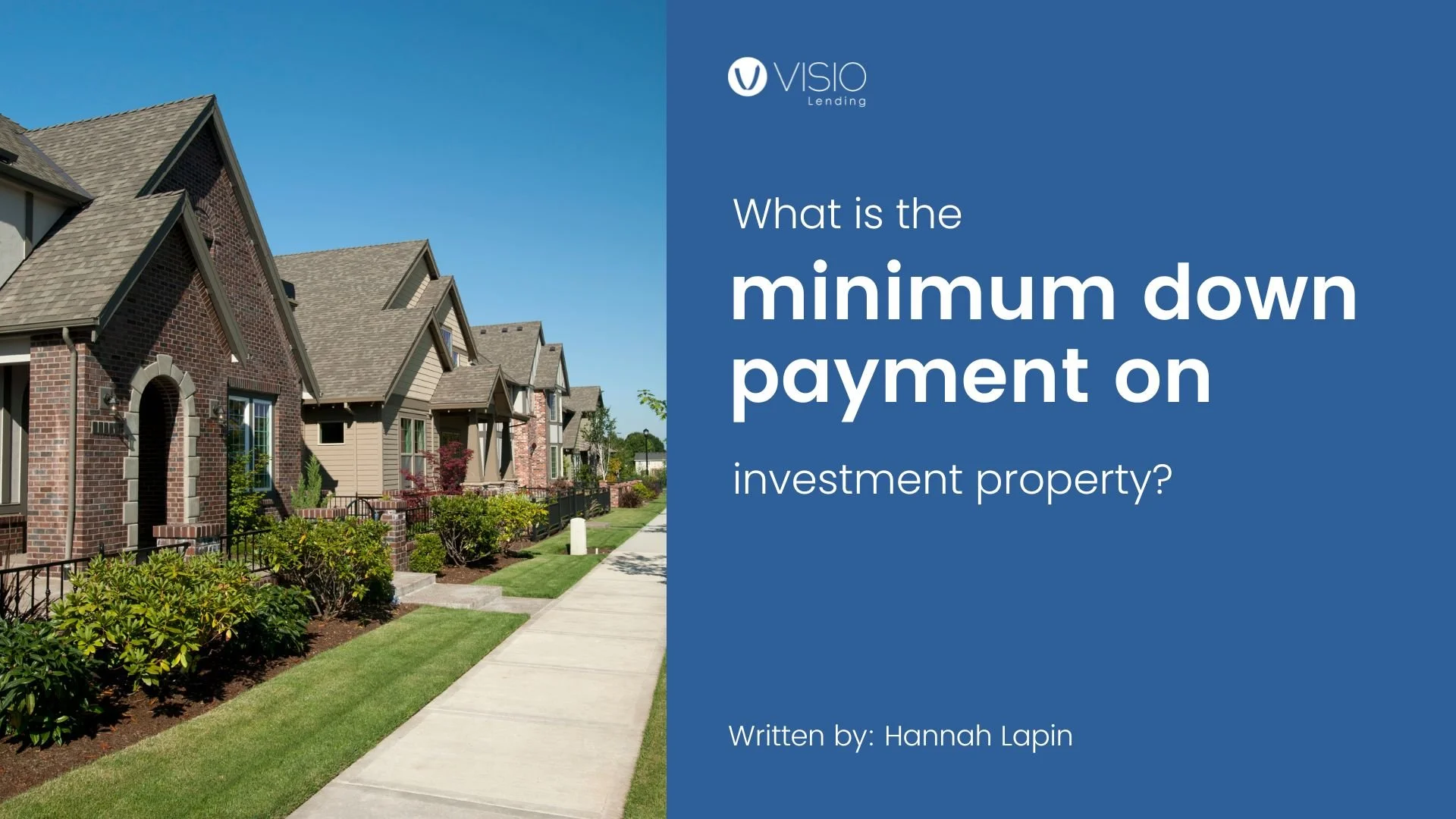The minimum down payment for an investment property varies depending on the type of investment property as well as the loan and the lender’s requirements. In general, down payments for investment properties are higher than those for your primary residence. Let’s take a look at the different kinds of investment property loans as well as the expected down payment for each.
Types of Investment Property Loans and Minimum Down Payment Requirements
Investment property loans can be categorized as government-sponsored or conventional mortgages versus private lenders as well as residential versus commercial loans. In this section, we are providing a brief overview of the down payments you’ll need for different mortgage loan types, but keep in mind that this varies based on mortgage lenders and credit scores.
Government-Sponsored Investment Property Loans: 15-25% Down Payment
Government-sponsored loans are often associated with loans for your primary residence, such as Federal Housing Administration or FHA loans and VA loans. However, conventional lenders also offer loans for investment properties. In the current Fannie Mae eligibility matrix, the minimum investment property down payment is 15% for one unit and 25% for 2-4 units.
This is likely your lowest down payment option and interest rate, yet it is important to note that conventional loans for investment properties come with other stringent requirements. For instance, on a conventional mortgage you will need a minimum Debt-to-Income ratio (DTI) of 45%. This means that the debt you have for your new conventional loan as well as any mortgage loan you have for your primary residence, must be significantly less than your income. You will also likely need a 680 credit score and six months of cash reserves. Additionally, it is important to note that you will need private mortgage insurance if your down payment is less than 20%.
Private Loans for Investment Properties: 20-40% Down Payment
This group of loans tends to have more favorable loan terms for real estate investors, yet they will be more expensive than a conventional lender. Here’s a closer look at what we mean.
DSCR Rental Property Loans
This kind of loan is originated by a private lender like Visio Lending and is underwritten based on credit history and rental income, rather than personal income. Although this type of rental property loan comes with a higher down payment and interest rate, many real estate investors utilize this type of loan to build a portfolio of rental properties.
Investor Renovation Loans
Also known as flip loans, these are short-term loans designed for investors to purchase and rehab single-family homes. This kind of private loan also comes with a higher down payment amount, yet are designed to cover the costs of any renovations as well as the purchase of an investment property.
Commercial Loans for Investment Properties: 25% + Down Payment
So far, we have discussed residential loans, which are for any investment property up to four units. Commercial loans are for multifamily property or other investment property types including office, retail, etc. To get this type of investment property loan, you’ll need to have a high credit score and minimum down payment of 25%, but higher is better.
What happens if you don’t have a full down payment?
We usually advise having sufficient funds for a down payment as well as closing costs and an emergency fund before you purchase an investment property. However, there are some creative ways to get started with real estate investing without one.
Alternative Financing Solutions for Investment Properties
If your mind is set on buying an investment property before you are able to save money for the down payment, there are some unique methods to consider:
Alternative Ways to Get Started with Real Estate Investing
You don’t necessarily need to purchase a rental property outright to get started with real estate investing. Here are some ways you can become a real estate investor with less than $1,000 on-hand.
- Real Estate Investment Trusts (REITs): Similar to investing in the stock market, through REITs, you invest in publicly traded companies that own and manage income producing real estate properties, such as multifamily property.
- Real Estate Crowdfunding: This real estate investment strategy involves an investor pooling money with other investors through an online platform to invest in larger real estate projects.
- Wholesaling Real Estate: When you wholesale real estate, you sign a contract with a seller for a property and then turn around and sell the contract to another real estate investor. The idea is to sell the contract before the purchase of the home goes through. While wholesaling requires no down payment, it can be very risky for beginners.
Ideas to Save for a Down Payment
If you do not have a down payment and you do not want to get started with real estate investing in an alternative method, here are some ideas to help you save money.
Rent Out a Room
If you’re currently a homeowner, consider renting out a room to generate rental income for your down payment. This plan could also help you pay off your existing mortgage.
Side Hustles
Start a side business or take on freelance work to generate additional income dedicated to your investment property down payment.
Sell Unused Assets
Liquidate assets such as electronics, furniture, or other items you no longer need.
Automate Savings
Set up an automatic savings plan where a portion of your income is automatically transferred to a dedicated down payment fund each month.
Summary
Clearly, determining the minimum down payment for an investment property is a multifaceted process, influenced by the type of loan, property, and lender requirements. While government-sponsored loans may offer a lower down payment, they come with stringent criteria. Private loans, with down payments ranging from 20-40%, can be more flexible but come at a higher cost. Commercial loans for larger properties require a minimum down payment of 25%.
In cases where a full down payment seems challenging, alternative financing solutions such as seller financing, self-directed IRAs, home equity loans, or personal loans may provide viable options. Moreover, one can explore alternative ways to enter real estate investing with less upfront capital, such as Real Estate Investment Trusts (REITs), real estate crowdfunding, or wholesaling, though the latter carries significant risks.
For those without an immediate down payment, creative strategies like renting out a room, engaging in side hustles, or selling unused assets can help accumulate funds. Automating savings through a dedicated fund is another practical approach. In the dynamic realm of real estate investing, understanding these diverse pathways can empower prospective investors to navigate the financial landscape and make informed decisions tailored to their unique circumstances.






